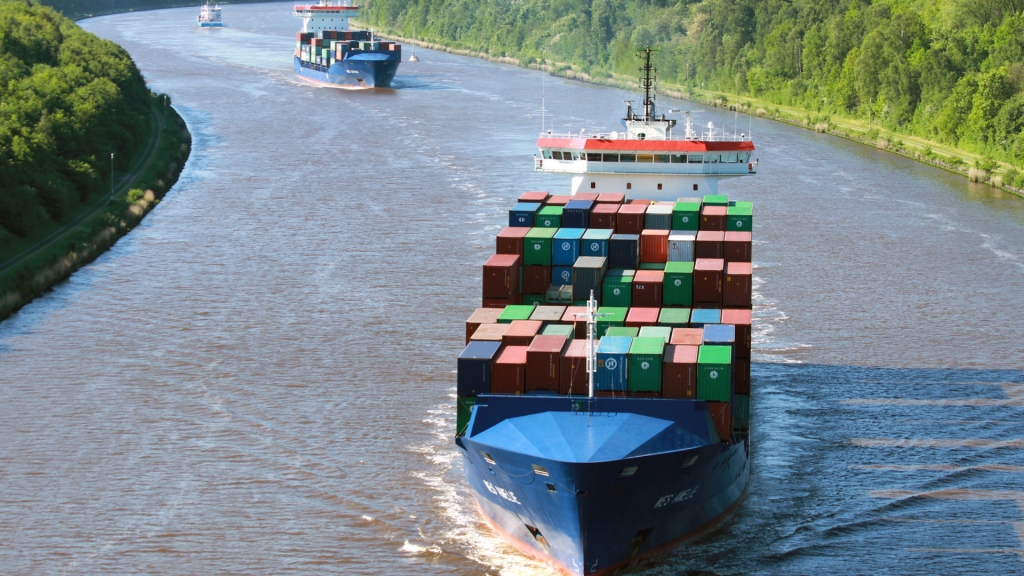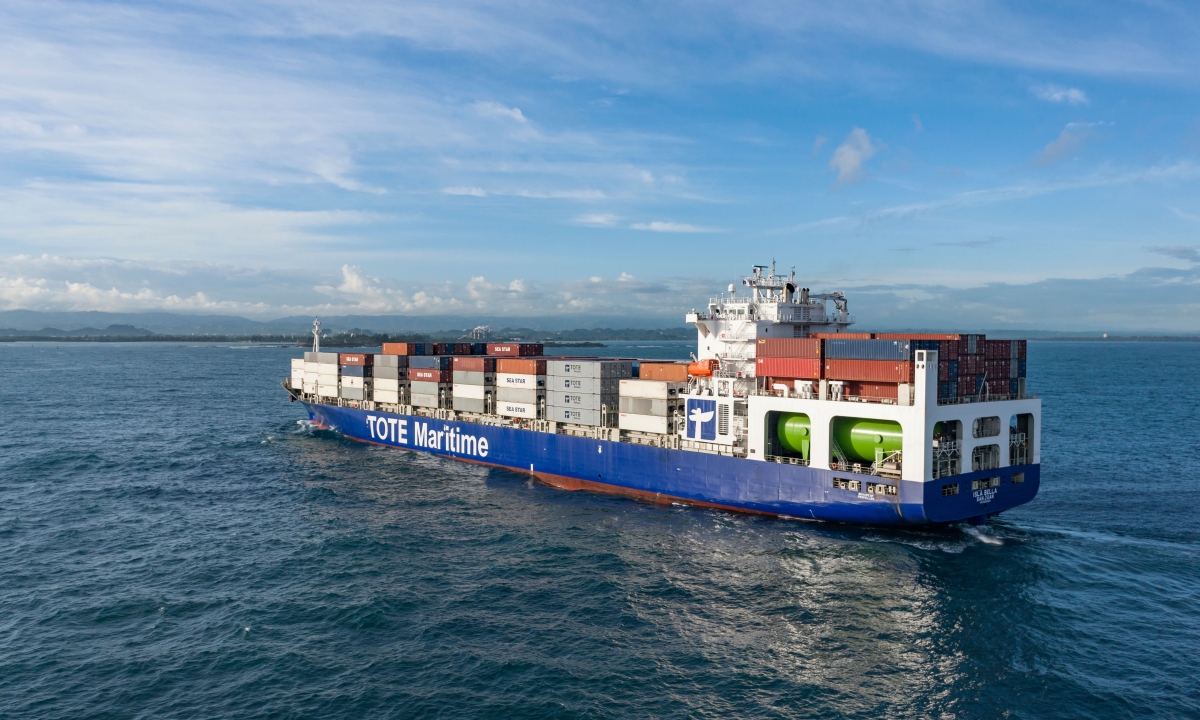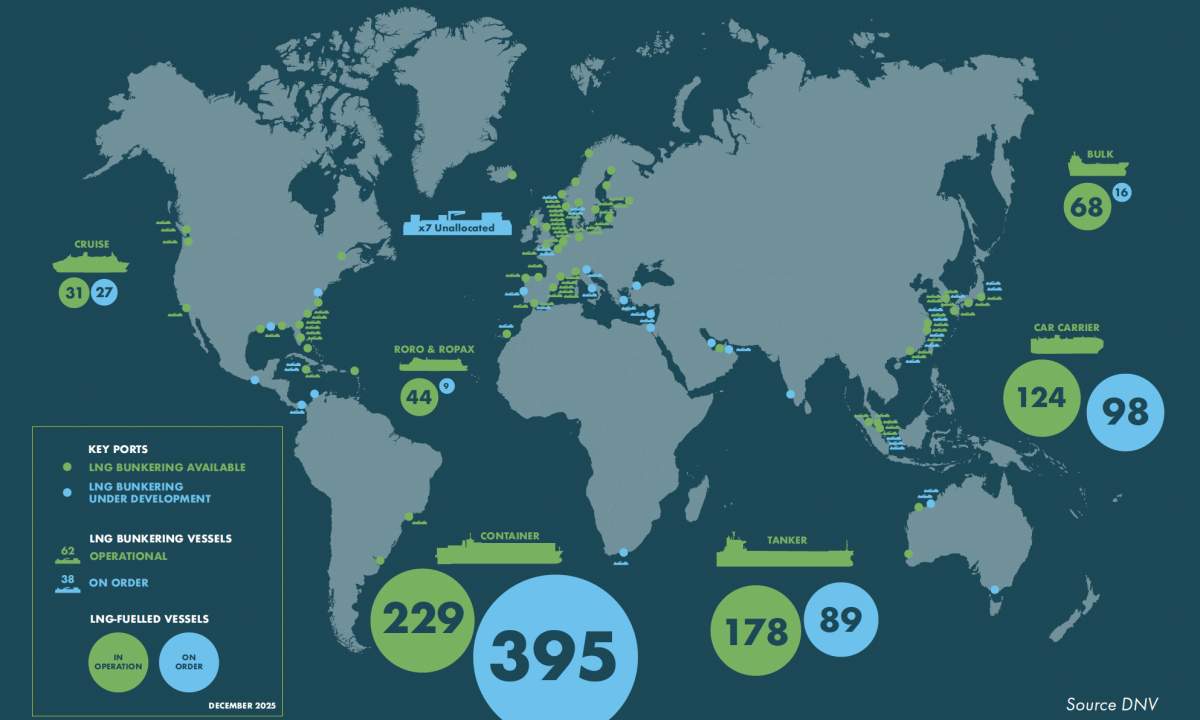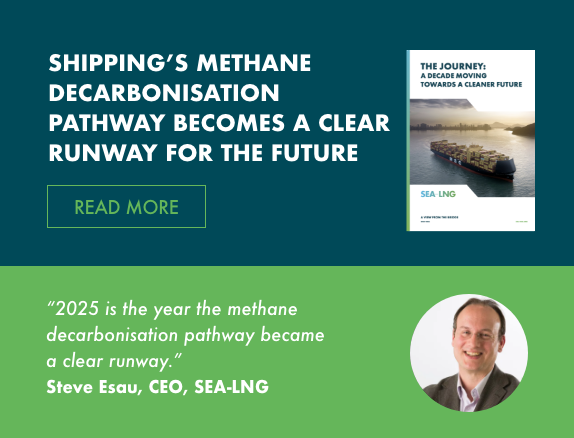1st March 2019
LNG DOES OFFER PATHWAY TO IMO 2050

LONDON, 28 February 2019: SEA-LNG, the multi-sector industry coalition aiming to accelerate the widespread adoption of liquefied natural gas (LNG) as a marine fuel, believes LNG is a viable pathway to meet the International Maritime Organisation (IMO)’s 2050 Greenhouse Gas (GHG) targets.
The maritime industry really has two broad but major environmental initiatives related to air emissions; dramatic improvement of global air quality, and reduction of GHGs.
Reinforcing the case for LNG as a marine fuel, SEA-LNG Ltd Chairman Peter Keller said: “In addition to immediate local air quality benefits, LNG offers a commercially viable long-term bridging solution to addressing the IMO GHG targets. LNG, in combination with efficiency measures being developed for new ships in response to the IMO’s Energy Efficiency Design Index (EEDI), will provide a way of meeting the IMO’s target of a 40% decrease in GHG by 2030 for international shipping. In addition, there are clear technology pathways being developed which should allow further emissions savings to be realised. For example, today, mixing LNG with bioLNG (from biogas) as a ‘drop-in’ fuel, significantly reduces GHG emissions. Longer term, ‘power-to-gas’ is a key technology with the potential to produce large volumes of renewable LNG.”
LNG far outperforms conventional marine fuels in terms of minimising local emissions to improve air quality and can significantly reduce GHG emissions. LNG emits zero sulphur oxides (SOx) and virtually zero particulate matter (PM) and compared to existing heavy marine fuel oils, LNG emits 90% less nitrogen oxides (NOx). Academic literature shows that realistic reductions of GHG by 10-20% are achievable[i], with a potential for 25% or more as technology develops over the coming years, compared with conventional oil-based fuels.
SEA-LNG together with SGMF has commissioned an independent study to establish the facts regarding GHG emissions from LNG as a marine fuel considering all emissions from well-to-wake for LNG and other fuels. This study is currently being reviewed by independent academics and SEA-LNG and SGMF expect to publish the results in April.
Future technologies that appear to have promise, safety and scalability could be built upon marine fuel infrastructure for LNG and clearly indicate that it is inaccurate to conclude that LNG will not provide a pathway to meeting IMO 2050 GHG ambitions. LNG can and does solve the air quality issues the maritime industry has been working on for decades and sets a path forward to meet IMO GHG targets.
Notes to editors
- For the latest SEA-LNG news, please visit: https://sea-lng.org/news-and-views/
- To share news about the coalition, please tweet us @SEA-LNGcoalition
About SEA-LNG
SEA-LNG is a UK registered not for profit collaborative industry foundation serving the needs of its member organisations committed to furthering the use of LNG as an important, environmentally superior maritime fuel.
SEA-LNG has members across the entire LNG value chain including providers of the product, users, engine and asset suppliers, and class societies. SEA-LNG is already recognised as an International leader in LNG matters. Each member organisation commits mutually agreed human resources, data analysis and knowledge sharing in support of SEA-LNG initiatives and activities and financially contributes via a membership fee. SEA-LNG is guided by a board, which is led by chairman Peter Keller, who was elected as Founding Chairman in 2016.
SEA-LNG’s members include: ABS, Carnival Corporation & plc, Clean Marine Energy, DNV GL, Eagle LNG Partners, ÉNESTAS, Exeno Yamamizu, Fearnleys AS, Gasum, GE, GTT, JAX LNG, Keppel Gas Technology, “K” LINE Group, Lloyd’s Register, MAN Energy Solutions, Maritime and Port Authority of Singapore (MPA), Marubeni Corporation, Mitsubishi Corporation, Mitsui & Co., Ltd., Naturgy, Novatek Gas & Power, NYK Line, Petronet LNG, Port of Rotterdam, Qatargas, Shell, Société Générale, Sumitomo Corporation, Total, TOTE Inc., Toyota Tsusho, Uyeno Group of Companies, Port of Vancouver, Wärtsilä, and Yokohama-Kawasaki International Port Corporation (YKIP).
Media enquiries
Kwilole Chisuse-van der Boom (Ms)
BLUE Communications
M: +44 (0) 7885 463 927 / T: +44 (0)1865 514 214
kwilole@blue-comms.com
Lisa Davison (Ms)
BLUE Communications
M: +44 (0) 7936 699 235 / T: +44 (0)1865 514 214
lisa.davison@blue-comms.com
[i] Sources include NGVA Europe, 2017. Greenhouse Gas Intensity from Natural Gas in Transport; DNV GL, 2015. In Focus – LNG as a ship fuel; Corbett, J.J., Thompson, H., Winebrake, J.J., 2015, Methane Emissions from Natural Gas Bunkering Operations in the Marine Sector: A Total Fuel Cycle Approach



